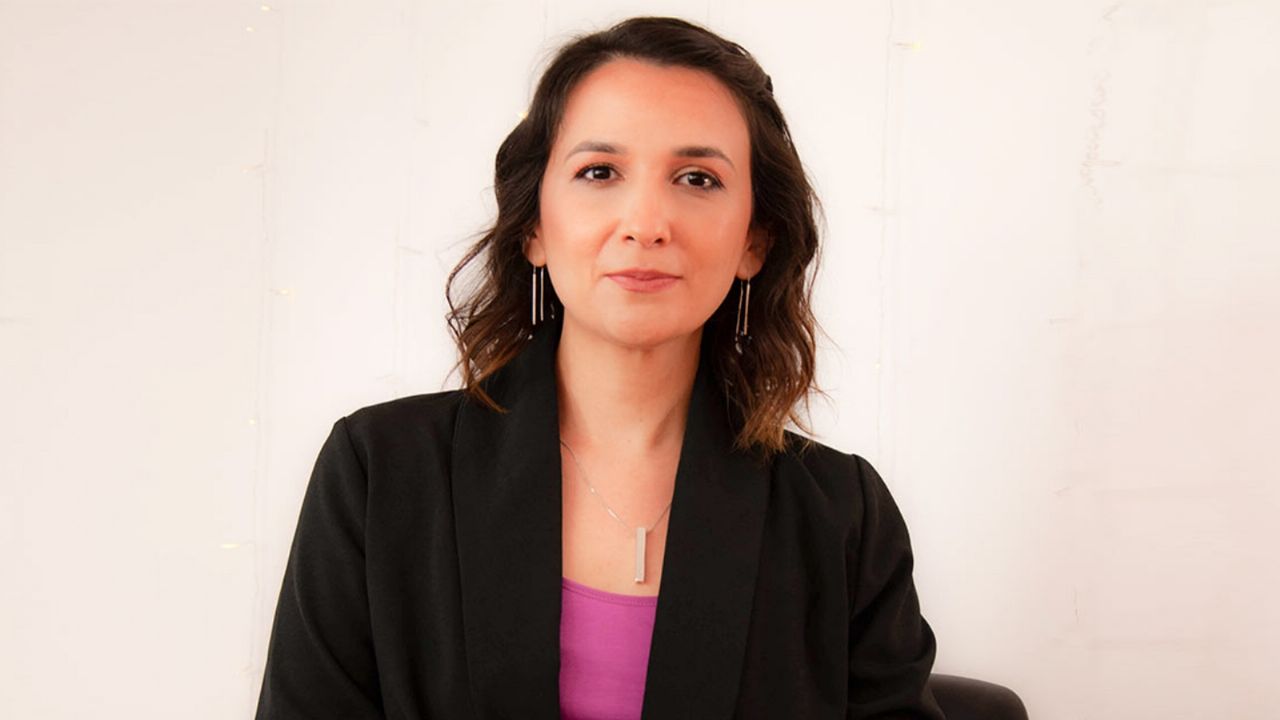Jessica Lavia is a nutritionist from the University of Buenos Aires, with more than 15 years of experience in the field. During her journey as a health professional, she ventured into different areas, until, as she herself mentioned in an interview for Minuto Argentina, she understood the importance of nutritional education from a comprehensive perspective.
In this way, the specialist understood that talking about nutrition is not only about thinking about what we eat, but also about how we eat it, but, above all, about how we relate to food, since, as he explains Jessica Laviawe must understand what happens to our body in relation to how we eat.
All these ideas, along with her approach to feminism and the advent of motherhood made her Jessica Lavia reconsidered his role as a nutritionist, the message that she takes to others about health and the way in which she relates to her patients with the aim of addressing health in a more comprehensive way.
In this context, as a professional, she wanted to approach nutrition away from stereotypes, with a gender perspective, but, above all, with the purpose of promoting respect for body diversity.
In this search, both personal and professional, he wrote in 2021, together with the journalist Paula Jiménez, his first book: “Despite what it weighs: against the hegemony of the ideal body”, a publication dedicated to femininities, where both experts They ask questions like: what happens to our body, why do we live on a diet and why are we so dissatisfied with our image.
In this sense, the book proposes the idea of rethinking all the stereotypes that are generated, especially in women, around the image they have of themselves regarding the body.

Although she acknowledges that this first publication was a good approach to the subject, the nutritionist comments, in an interview for this newspaper, that she felt the need to delve deeper into this area, even with the purpose of addressing stereotypes and eating disorders from a more health perspective. integral.
Likewise, she sought to raise what is behind the business of diets and the system itself, therefore, as she herself mentions: “thinking a little beyond the subject of food” and with the purpose of “running away from the idea that the only valid body is a skinny body”. He decides to delve deeper into his approach and writes his second book: “Surviving a fatphobic world without falling into eating disorders”.
To break down what this work is about, the nutritionist explains that, although the term fatphobia exists as such, what invites us to rethink activism is talking about fathate, since, what is being talked about, in itself, is rejection, violence and discrimination; while, when talking about a phobia, it refers to a disease as such.
In this sense, the specialist points out that fathate “generates a lot of stigma.” In the case of Argentina, for example, fatness is the second most frequent reason for discrimination, which occurs mainly in schools.
This type of violence also promotes and generates bullying, as well as psychological and physical damage, which in turn causes people who are victims of discrimination to isolate themselves. Viewed another way, the physical, the social and the psychological influence, in a positive or negative way, on people’s health.
Although the issue of stereotypes and discrimination has been present for a long time, with the rise of social networks and the media it has become more evident, so the professional stresses that it is very important to rethink the idea that is sold on the body through these platforms.

This, since, for example, the excessive use of filters in social networks, distort the way in which we see ourselves, which can promote, in some cases, disagreement about body image and relationship between body and food.
Likewise, it is common to see both inexperienced and expert advice on the internet, which, even, as the professional says: “is not updated”, since it is common to find doctors or specialists who also send an erroneous message, so Route insists that it is important that “everyone, from their place, take charge of what they communicate, how they communicate it” and, above all, think to whom and how that message reaches them.
But not only social networks are a great influence on people’s body image, but also the system itself, since, as the specialist mentions in her publication, it is only made for thin people.

A clear example of this are the seats of public transport; The same happens with clothing sizes, which in the particular case of Argentina, despite having a law that establishes that clothing must have sizes based on real bodies, is still not regulated, which also encourages discrimination. and violence against tall people.
For this reason, the nutritionist states, in an interview for this newspaper, that it is essential to get away from the idea that only thinness is associated with health, when, in many cases, it is not so; For this reason, it is so important to modify the messages that are transmitted about body image and health, both from ordinary people and from experts, because, within the same system, there is also discrimination and stereotypes regarding weight, which is one of the the main messages conveyed in his work.
“There is an idea that we are a small society, with a certain type of body that is stereotyped, and it is the one that we want all people to fit into that mold, but, if we go out into the street and look to the sides, surely we are going to find diversity, not only in weight, but, in general, in the bodies”.

And it is precisely this diversity that the health professional invites us to rethink and respect, both from what she proposes in her work, and through the message she wants to carry as a nutritionist, because, as she herself mentions, it is important to review “by why do we want all people to have a certain weight and assume that this is the right weight” and how this message generates violence towards others.
Within this framework, the specialist stresses that it is very important to also have another type of cultural construction as a society, which implies, for example, not giving opinions about the bodies of others and the way in which that other is seen, since this still promotes plus all those stereotypes and prejudices that, as a society, we must begin to break.
“How important to rethink this of not giving an opinion about another person’s diet, about another person’s body, because They are small comments that are making the social imaginary and are building those stereotypes from which we want to run away”.
This, since all those messages or signals about the image of the other are violence and can generate very negative emotional, physical and psychological repercussions that are detrimental to one’s own health, which is also a fundamental right.
Likewise, it is essential to consider and take into account that a thin person is not necessarily healthy, even, in many cases, a heavier person can be healthier than someone thin, but socially and culturally we have been led to believe that not having the weight prototype or defined by society means something bad.
However, it is not about encouraging or promoting weight from excesses or the negative, such as obesity or binge eating, since these are also eating disorders. For this reason, with his work, he proposes that we must reconsider the hate speech that is generated around weight, since, in addition, there is a clear obsession around thinness.

In this sense, the nutritionist emphasizes that it is necessary, from education, to promote a deep social and cultural change, where the health system is also immersed, since it is necessary to start thinking about food from comprehensive health and from respect for diversity.
“We must start to get rid of this weight-centric view that we have of health and weight stigma”, which not only means putting aside stereotypes, but treating all bodies equally, based on their particularities and individual needs, because Otherwise, violence and discrimination will continue to be encouraged, but above all, people will be further removed from the same health system.

What does it mean to talk about holistic health?
For the specialist, talking about comprehensive health means thinking about health from the physical, mental or mental and from the social and emotional, because, in the case of nutrition, we not only have to think about what we eat, but also how we relate to the food, the environment, and the different ways in which this affects health.
It also stresses that having a comprehensive approach to health also calls for interdisciplinary workthat is, addressing the problems of patients from different specialties, in order to complement each other and provide the necessary tools so that the person can truly receive comprehensive treatment.
For this very reason, it is so important to seek changes from the collective, because, to generate a true transformation, both socially and culturally, it is essential to work jointly and, from the positive that can be built as a society, because although there is still There is a long way to go, the first steps have already been taken.
For JessicaAs a nutritionist, writing this book was also a challenging transformation process, since not only did she have to rethink many things as a professional, but also in her life itself, since before she also made the mistake of measuring her patients according to the tables of body mass, for which she also, without wanting to, exercised against other people that type of violence that she seeks to eliminate today.
For this reason, she is convinced that more of those small changes that have already taken place must be promoted, not only in favor of respect for image and diversity, but also for comprehensive health, so that this right is guaranteed to everyone equally. fundamental.
Although he confesses that his approach “is not an absolute truth” and that above all “much remains to be done”, he remarks that just as we must all take responsibility, from the place that each one occupies, it is also necessary that there be public policies that accompany the different strategies that are implemented to eliminate violence, discrimination.

For this reason, as he emphasizes, in an interview for this newspaper and with its publication, the answer to survive a fatphobic world is, on the one hand, that health be contemplated from its three pillars: the physical, mental and emotional and, on the other the other, that as a society we rethink the way we see ourselves or others in relation to their weight.
This, since not only is the exit collective, but it is the path that as a society we must follow so that, in the not too distant future, we stop promoting hatred and stereotypes towards others because of their image, well, although Much remains to be done, as she emphasizes, the “most important thing is that we are already opening our eyes.”
















